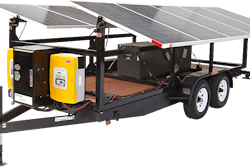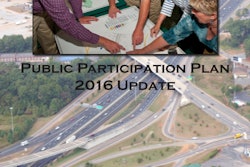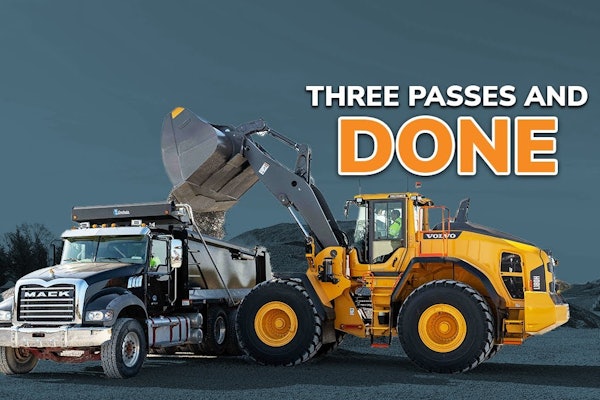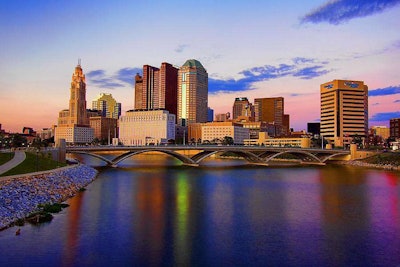
USDOT has pledged up to $40 million to help with technology and services funding to help convert the city into the first in the nation to fully integrate technologies, such as smart sensors and connected vehicles, into its transportation system. Paul G. Allen’s Vulcan Inc. has pledge an additional $10 million. Other partners for the program include Amazon Web Services, Mobileye, Autodesk, Alphabet’s Sidewalk Labs, NXP, AT&T and DC Solar Solutions.
“This funding is a game changer for the City of Columbus and central Ohio,” Brown says in his statement. “I’m glad the Department of Transportation recognized what so many of us already know – Columbus is a smart city that deserves to win this challenge. Columbus’ skilled and diverse workforce, state-of-the-art research institutions, and strong-public-private partnerships will help this project succeed. I look forward to working with local leaders and community members to realize the vision of a first-of-its-kind transportation service that increases access to jobs, links neighborhoods, and improves real-time information in a sustainable, safe way.”
Columbus worked with the Central Ohio Transit Authority, the Mid-Ohio Regional Planning Commission, the Ohio Department of Transportation, Columbus 2020, Experience Columbus, and “local stakeholders” in submitting their application. It created a Smart City Program Office and is partnering with Ohio State University, Battelle, IBM and Clean Fuels Ohio to address their transportation-related challenges.
Their strategies to do so with smart technologies include:
Access to Jobs
“Columbus has several major employment centers but has challenges of workers having reasonable access to these jobs. Our primarily solution is to develop smart corridors and concentrate transit services on these corridors and address last mile connections that will connect these employment centers with their work force.”
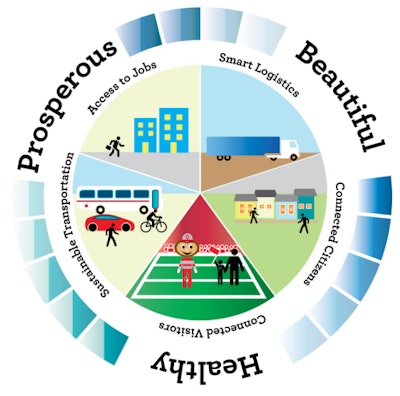 Columbus’ vision
Columbus’ visionSmart Logistics
“Columbus is a major freight hub with a multimodal inland port. However, the reliability of our highway system needs to keep pace with our growth. Our primary solution is to enhance the timeliness and quality of the traffic condition data as well as develop a routing app for trucks to improve the reliability of our highway system and operational efficiencies.
Connected Visitors
“Columbus is a regional destination for its sporting events, Zoo, airport, medical services and shopping offerings. However, these events lack real-time information related to traffic and parking conditions, and transit options. Our primary solution is to seed fund a private sector developed app for a specific event with the expectation of private funding for other city events as well as expansion of such service to other mid-sized cities.”
Connected Citizens
Columbus has select neighborhoods with mobility challenges that limit its citizen’s access to jobs, health care, and education services. Our solution is to examine the Linden neighborhood mobility challenges and work with local private and public social services providers to rationalize current transportation services and offer more efficient mobility services.
Sustainable Transportation
Columbus has a Green Community Plan and recently completed a major Smart Grid project. Our plan challenges us to create a future urban type vehicle ownership/sharing and driving/mobility patterns environment that encourage the use of sustainable modes and energy consumption, such as electric vehicles (EV) and smarter grid. We plan to explore the usage of additional EVs with several policy and practice changes at the City focused on incentives to developers and others to greatly expand the number of recharging stations, and expand our Smart Grid project to other parts of the City.
The city’s “vision narrative” is available here, and below is the Columbus video pitch for the Smart City Challenge.





